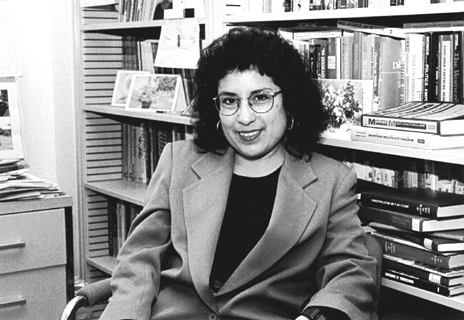![[Currents header graphic]](/homeart/currents_header.gif)
![[Currents header graphic]](/homeart/currents_header.gif)
May 10, 1999
Successful academic conferences leave participants energized and exhausted, and that's just how Patricia Zavella felt after a recent two-day gathering on "Mexican Women in Transnational Context."

|
|
Patricia Zavella
|
The interdisciplinary gathering brought together a total of 27 scholars from Mexico, several UC campuses, and the California State University system to discuss labor, family, and migration issues.
"It was wonderful," said conference cofacilitator Zavella, a professor of community studies and codirector of UCSC's Chicano/Latino Research Center. "We had scholars from all over Mexico--the border area, Guadalajara, Mexico City, and Oaxaca."
Sponsored by UC Mexus, the bilingual conference was organized into four sessions, each of which generated animated discussions of issues such as the stress that migration puts on families, the role of women in the "border" labor market, which extends north and south of the legal border between California and Mexico, and ethnographic experiences of women within the family and the workplace.
Some of the most lively discussion focused on media representations in both countries of Mexican immigrants. While U.S. publications portray migrants as "invaders" and the United States as under "siege," Mexican magazines and newspapers use metaphors that suggest migrants are "abandoning" Mexico and will lose their culture and language.
"It was great to have scholars from the social sciences and the humanities together," said Zavella, adding that cross-border issues pose unique writing challenges for both researchers and creative writers and filmmakers.
In addition to Zavella, UCSC participants included Olga Nájera-Ramírez, associate professor of anthropology; Aida Hurtado, professor of psychology; Norma Klahn, associate professor of literature; and graduate students Veronica Lopez and Maylei Blackwell of sociology and history of consciousness, respectively.
Several participants formed a working group and plan to meet again next year in Mexico, said Zavella.
The gathering was co-organized by the Chicano/Latino Research Center and the Center for Chicano Research at UC Santa Barbara. Denise Segura, a sociology professor at UCSB, served as cofacilitator.